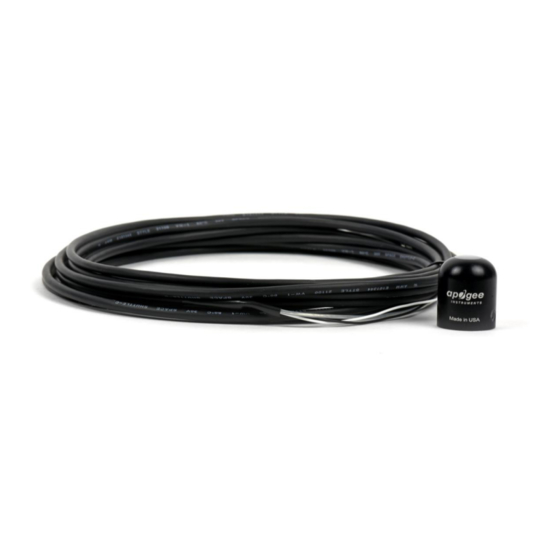Apogee Instruments SP-110-SS Gebruikershandleiding - Pagina 14
Blader online of download pdf Gebruikershandleiding voor {categorie_naam} Apogee Instruments SP-110-SS. Apogee Instruments SP-110-SS 20 pagina's. Pyranometer

Silicon-cell pyranometers can still be used to measure shortwave radiation in conditions other than clear sky or
from radiation sources other than incoming sunlight, but spectral errors occur when measuring radiation with
silicon-cell pyranometers in these conditions. The graphs below show spectral error estimates for Apogee silicon-
cell pyranometers at varying solar zenith angles and varying atmospheric air mass. The diffuser is optimized to
minimize directional errors, thus the cosine response graph in the Specifications section shows the actual
directional errors in practice (which includes contributions from the spectral shift that occurs as solar zenith angle
and atmospheric air mass change with time of day and time of year). The table below provides spectral error
estimates for shortwave radiation measurements from shortwave radiation sources other than clear sky solar
radiation.
Spectral response of Apogee SP series
pyranometers compared to solar
radiation spectrum at Earth's surface.
Silicon-cell pyranometers, such as
Apogee SP series, are only sensitive to
the wavelength range of
approximately 350-1100 nm, and are
not equally sensitive to all
wavelengths within this range. As a
result, when the spectral content of
solar radiation is significantly different
than the spectrum that silicon-cell
pyranometers were calibrated to,
spectral errors result.
Spectral error for Apogee SP series
pyranometers as a function of solar
zenith angle, assuming calibration at
a zenith angle of 45°.
